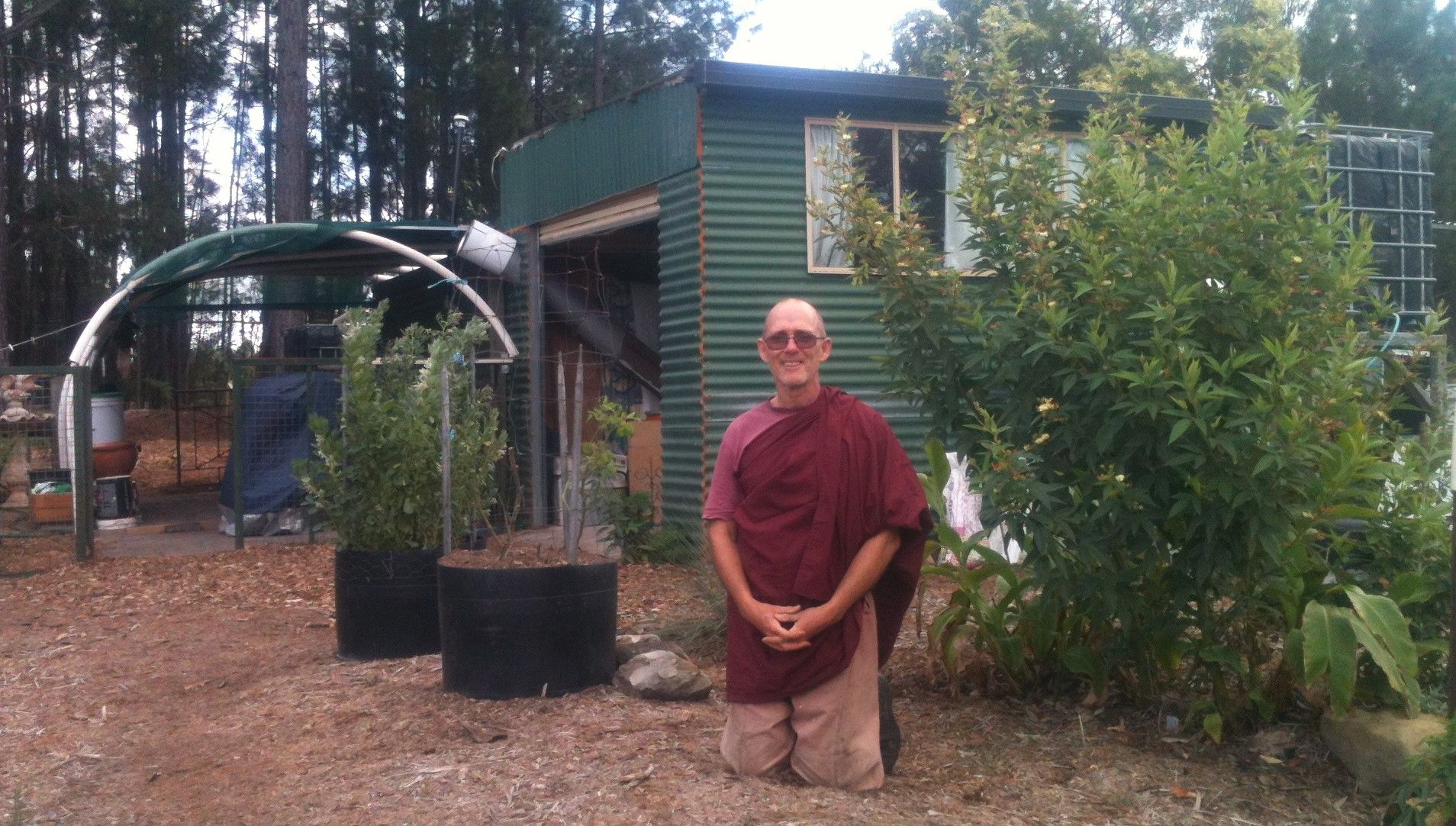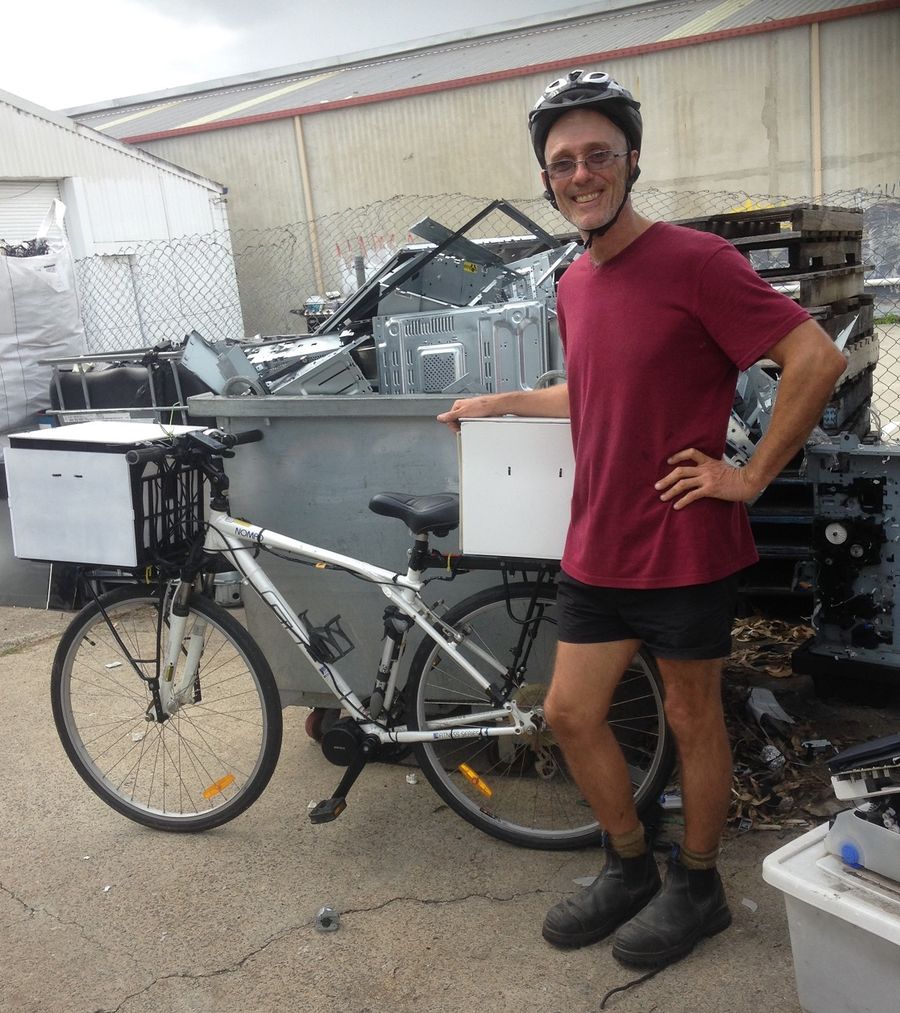Monk's Mobile Mansion
Hello, my name is Brother Joe Smith and I've been a (Buddhist/Zen) Monk for 16+ years.
Out of compassion for current and future generations, including me, I'd like more than anything get out of my unhealthy shed and to spread sustainable living knowledge. To do this, the best way I know is, to live in a van - simple, healthy, portable accommodation. I'm aiming for a small, sustainable, mostly off-grid and power self-sufficient mobile home, so I can move out of the snake and toad accessible, dusty, leaky, mouldy shed I'm in. My brother has a separate caravan space here, which is mainly for WWOOFers. I sleep in the caravan, when WWOOFers aren't here, to spend less time in my 'work shed'. Other times I sleep in my tent in the cubby house that has no windows or doors and it's quite cold in winter, but it's dry!
Below is a pic of the shed, shortly after I moved in and after moving the garbage and rats out. First thing was collecting rainwater, as we don't have mains water. So I attached gutters and got small second hand tanks. There are no plants other than lawn and the pine forest behind, now replaced by an intense housing development. You can just see one of my donated bee hives from a retiring bee-keeper center far right, a white box with an unpainted wooden panel for more insulation. Ummm, is a hammock too luxurious for a monk? :-)
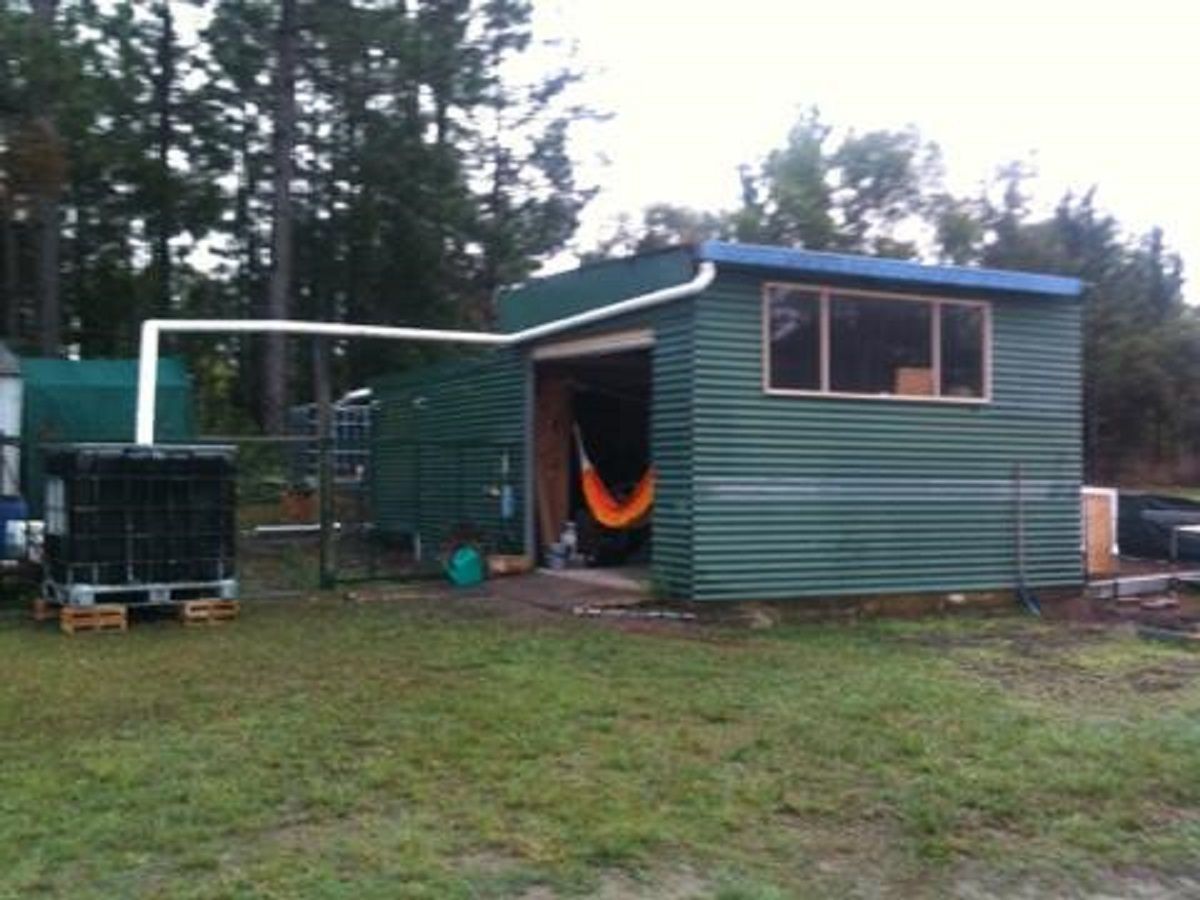
In winter, when my garden and bees at my brother's place, don't need (much) attention, I can also use the van to travel up north (warmer) and WWOOF. In my travels I hope to ramp up what I'm doing here: get more experience in living sustainably, inspire and educate people to live more sustainably (combatting greed and its environmental destruction), share with those interested, what I understand to be the Buddha's teaching, which IMO, is scientific and not religious, or superstitious (unless you think ethics, meditation and wisdom are only religious concerns), to practice more meditation and translate early Chinese Buddhist texts. Once I have done at least one winter, I may travel full-time, which is how monks originally lived, but is very hard now legally, without accommodation. See the formerly trained lawyer who became a monk, but eventually gave up constant travelling as a monk, due to legal concerns.
WWOOFing requires 4-6hrs work per day, for food and accommodation. Having my own accommodation for my travels, I will need to work less, which I need, due to my medical conditions, mainly Post-Viral Fatigue (Dengue and Ross River Fevers). With the help of WWOOFers I have done a lot of work around here and below is what my place looked like in 2016. Good bye to a lot of the grass... less mowing please and less water runoff and evaporation in this drought zone, more soil creation and more cooling in summer, from the water slowly evaporated out of the mulch.
Both moving into the van and travelling, at least in winter, isn't financially possible at the moment, because I gave my finances away, when I became a monk, including my share of an inheritance to my younger brothers, so they could more easily look after their young families and I now live in the gift economy. "Live simply, so others may simply live." (Gandhi) To me, financial debt, especially with interest, is slavery and is to be avoided, in both sustainable living and the gift economy. Native cultures do not require people going into debt, maybe for most of their lives, just to have place to call home. Living simply, like I do, I cannot get a bank loan anyway.
This is the area I've converted to a young food forest in this 'drought zone', you can see the wattles (native nitrogen fixers) are flowering:
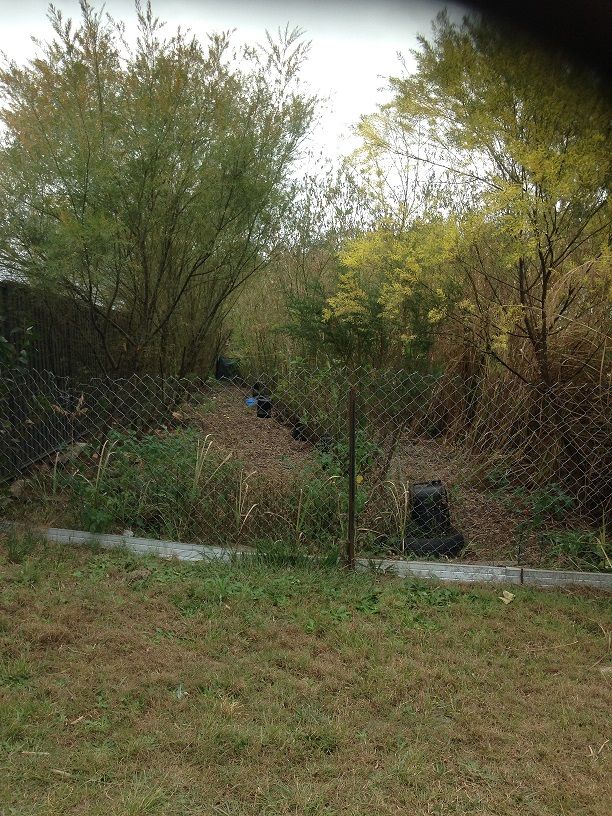
it used to be just grass, even without the few young trees to the left in this picture, which I planted:
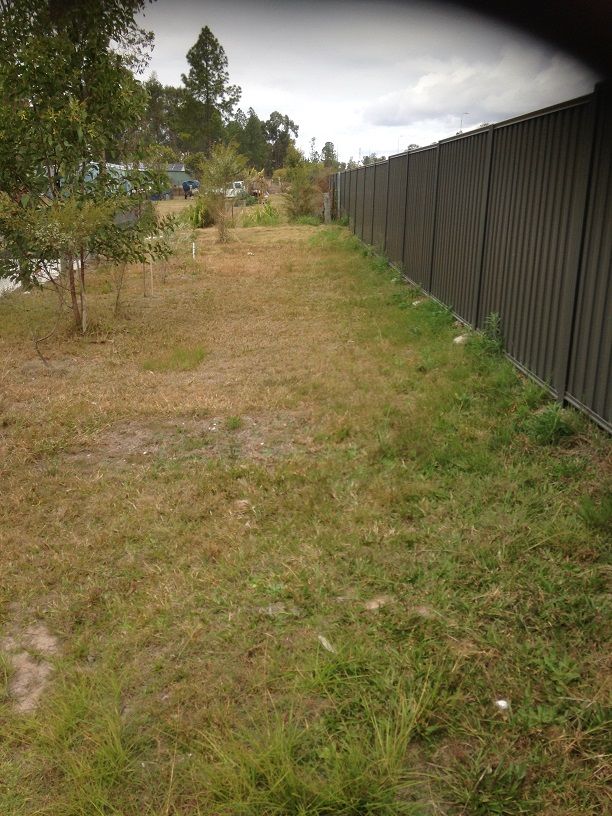
I run these free educational community events from my place: monthly honey and native bee workshops, Sustainable House Day (SHD) open home yearly (see my place's profile), general tours of my sustainable shed and garden and meditation. See last year's local paper report. I've helped around 12 local people start beekeeping with new hives in the last year. Currently I'm a WWOOFer host and have educated WWOOFers in more sustainable living: see the list of sustainable retrofitted features of my space here in my SHD profile. I'm a volunteer editor at SuttaCentral, which makes the early Buddhist texts freely available for all. I also volunteer at Substation33 which recycles computer waste, where I made my new main transport, my converted electric bike:
and then sold my petrol driven step-through scooter. Their solar trailer design with panel wings or awnings, will be incorporated into my van. Substation33's solar trailer should be at my place Sustainable House Day this year (2018). Also I run the Permaculture Brisbane Facebook group and educate online about the Buddha's teaching, which brings deep satisfaction in this very life: https://independentresearcher.academia.edu/BrotherJoeSmith. See my 2005 book available there for free, as monks shouldn't charge for education: The Gift of the Buddha, a Happy Life, with an excellent foreword by the Dalai Lama and my later book: The Broken Dhamma/Dharma, or The Karma that (hopefully) Kills the Dogma of Buddhism.
If you think it's a good goal, please pledge support, in whichever way you can: donate, share... Your time and, or financial support is much appreciated. Pledges will only be collected once/if the total is achieved.
Budget Overview
My plan is to buy a second hand electric van and put 5-7 solar panels on it. The cheapest second hand van I've seen is AU$15K. The van will be my simple, healthy and more environmentally-aware home, wether on the road, or not.
Now Queensland has an electric super-highway, that is, car charging points from Brisbane to Cairns.
I have AU$6K savings, from selling bee hives and my petrol step-through scooter and have no other major assets to sell.
15 - 6 = AU$9K
Initially I was going to buy a ~AU$3K second hand ute, build an insulated box on the back and convert the ute to electric, but when I found out the conversion would cost AU$18-20K, I decided to just buy a second-hand electric van. I've seen new vans for AU$23K, but that is way beyond my means and I like the idea of recycling where possible.
Then I need to buy the other parts and put the solar system together ~AU$2K. I already have a second hand 3kW battery for it, which is worth around AU$3K new. Second hand solar panels are being donated by Substation33.
$17K would seem to be the cheapest mobile home possilbe, especially with the environmental focus of an electric vehicle. There are cheaper deals, that run on fossil fuel. For exampe, when I searched here up to $40K, I found: a 1976 $11K campervan and a 1986 converted mini-bus for $12K. Here I saw a caravan for $13K, a relocatable/demountable for $20K and a Hiace Campervan for $20K. I only looked at the first page of each.
The priority is getting out of that unhealthy shed and staying dry and warm.
posted raw honey from organically raised bees
get 1kg of honey in a recycled glass jar (net), posted within Australia only
pick up raw honey from organically raised bees
2kg of honey in recycled glass jars (net), picked up from here
Joe's Site Tour
Have a personal ~3hr tour of my Permaculture corner of my bother's property. You can see the Sustainable House Day profile: http://sustainablehouseday.com/house-profile-view/?house_id=25490
Honey Bee Workshop
Join an ~4hr workshop covering all the important basic beekeeping skills. Maximum 5 people per workshop.
